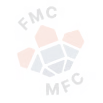Family Mediation Canada, which has traditionally focused on the impact of separation and divorce on families, has over thirty-five years’ experience developing and growing mediation in Canada. Not only is FMC a recognized leader in mediation training, certification, research and public policy development, it has also played a role in the evolution of our modern family courts.
Separation & Divorce

Reaching A Resolution
Using the mediation process.
Litigation, the traditional response to separation and divorce, can be a costly and cumbersome process. The adversarial nature of litigation can also produce a great deal of stress. Mediation and other forms of non-adversarial dispute resolution, on the other hand, are being increasingly accepted as appropriate and effective first-line responses for families in transition. And even though legal proceedings may have started, mediation remains an option within this process up to the point where a decision is made by the Court. Mediation also has the advantage of being a private process. It is done on a «without prejudice» basis, that is, the discussions held in mediation are confidential.

Benefits of mediation
Mediation is a confidential process and therefore makes it possible to have in depth conversations where people can safely share their experiences and perceptions, their needs and interests. This ensures better mutual understanding and ultimately the creation of more mutually acceptable solutions than would happen in the adversarial process of the court. (Such shared information is not permitted to be disclosed in subsequent possible court proceedings, and so cannot be used against each other.)

In summary:
- It is voluntary. You choose whether to participate and what you agree to if anything.
- You retain control:
- You choose to agree to the process of mediation
- You choose who your mediator will be
- You choose to contribute insights and ideas
- You choose to agree to the solutions you co-created
- You choose to remain accountable for the mediated agreement.
- The mediator is trained to work in difficult interpersonal situations and is committed to remaining neutral; supporting all parties through the process.
- It is timely and convenient. Schedule and venue are arranged for mutual convenience.
- It is private and confidential. Disclosures are made only by mutual agreement.
- It is fair and neutral. The mediator does not determine right or wrong and cannot impose solutions.
- It is a shared problem-solving process aimed at generating mutually acceptable solutions.
- It fosters cooperation and serves to preserve relationships for the future.
- It improves communication between the parties: you can safely discuss your views of underlying issues.
- There is a high rate of compliance with mediated agreements because they are crafted and customised by the parties, for mutual benefit.
- It is less costly than litigation.
- When properly drafted, signed and witnessed mediation agreements are legally binding contracts and therefore enforceable by law. A mediation agreement that is properly signed and witnessed, can be converted into a Consent Court Order, and filed with the court. Once signed by a justice and filed, it becomes enforceable.
What is the difference between ‘mediation’ and ‘family mediation’?
The underpinning principles and ethics are the same. What makes ‘family mediation’ a distinctly specialized field is that we recognise that family ties are precious and complex. A family re-structuring is not the same as a business partnership dissolving or resolving a workplace-based disagreement. Family mediators demonstrate depth of understanding and appreciation for the dynamics of a family in conflict and have the skills to help family members prevent conflict, navigate their way through history, emotions, needs and interests.
For more information, please do not hesitate to contact us.
To find a qualified Family Mediator in your area, click here.

Other Mediation Specialties
Become a certified mediator.
FMC is the leading body providing professional training and certifications for practitioners of family mediation in Canada.







